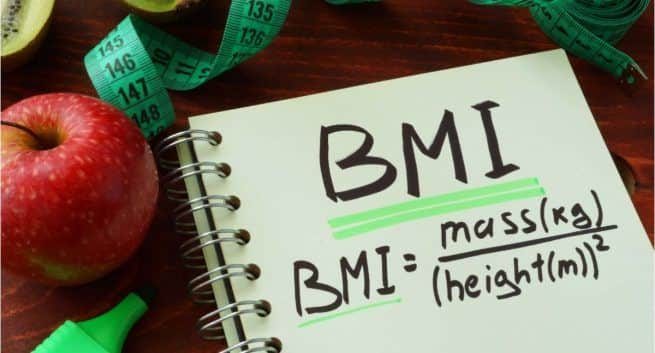Combining ‘A Body Shape Index’ With BMI May Help Predict Cancer Risk

Cancer is a broad word that refers to a set of diseases that are caused by abnormal cells quickly dividing and spreading to other tissues and organs. It is one of the world’s major causes of death. Early detection of cancer can increase the chances of successful treatment. Delay in cancer diagnosis and treatment can reduce the likelihood of survival of many patients. A new study has found using a measure body shape should be used alongside the body mass index (BMI) to assist determine the risk of obesity-related malignancies.
Body Shape Combined With BMI Is A Better Predictor Of Cancer
A measure of body shape should be used alongside the body mass index (BMI) to determine the risk of obesity-related malignancies, according to new findings presented at the European Congress on Obesity. BMI is a basic method of calculating body fat based on a person’s weight and height. However, its dependability is frequently questioned because it does not distinguish between different types of data. Body mass index (BMI) is a basic method of calculating body fat based on a person’s weight and height. However, it is frequently challenged for its accuracy because it does not discriminate between fat and muscle, or take into account where body fat is deposited, or a person’s sex or age. Similarly, waist circumference includes belly fat, which has been linked to a number of health issues, including heart disease, type 2 diabetes, and cancer.
A body shape index (ABSI) is a novel metric for measuring obesity that includes an individual’s age, sex, weight, height, and waist circumference—and it may provide a more accurate assessment of cancer risk than BMI. Researchers from the Universities of Glasgow and Newcastle gathered data from 442,614 UK Biobank prospective cohort participants (average age 56 years). They were monitored for an average of 8 years, and 36,961 participants were diagnosed with cancer.
The Key Findings
The team of researchers divided the participants into three groups (tertiles) based on their body shape to investigate the links between their body shape and the risk of 24 different forms of cancer. It was also to examine the use of ABSI and BMI as cancer risk predictors. Age, sex, ethnicity, deprivation, education, income, smoking, alcohol consumption, nutritional intake, physical activity, and sedentary time were all taken into account. In adults, body shape and BMI were found to predict various obesity-related cancer risks. ABSI was specifically associated with an elevated risk of three cancers. When compared to individuals in the lowest ABSI tertile, those in the highest ABSI tertile were 38 per cent more likely to get liver cancer, 40 per cent more likely to acquire lung cancer, and 17 per cent more likely to get bowel cancer.
Researchers discovered that having a high ABSI and a high BMI together raised the risk of seven forms of cancer, including uterine, oesophageal, liver, stomach, kidney, intestine, and breast cancer. Participants in the highest ABSI tertile who were overweight or obese with a BMI of 25 kg/m2 or more were at double the risk of uterine cancer as those in the lowest ABSI tertile with a normal BMI.
Excess body fat causes biological changes that affect sex hormone levels, such as oestrogen and testosterone, raise insulin levels, and create inflammation, all of which have been associated with an increased risk of 13 distinct forms of cancer.
However, this is observational research, and the participants are not a representative sample of the adult population in the United Kingdom, the findings cannot be applied to the broader population. So, more research is required to ensure the results are accurate.
This post first appeared on The Health Site







